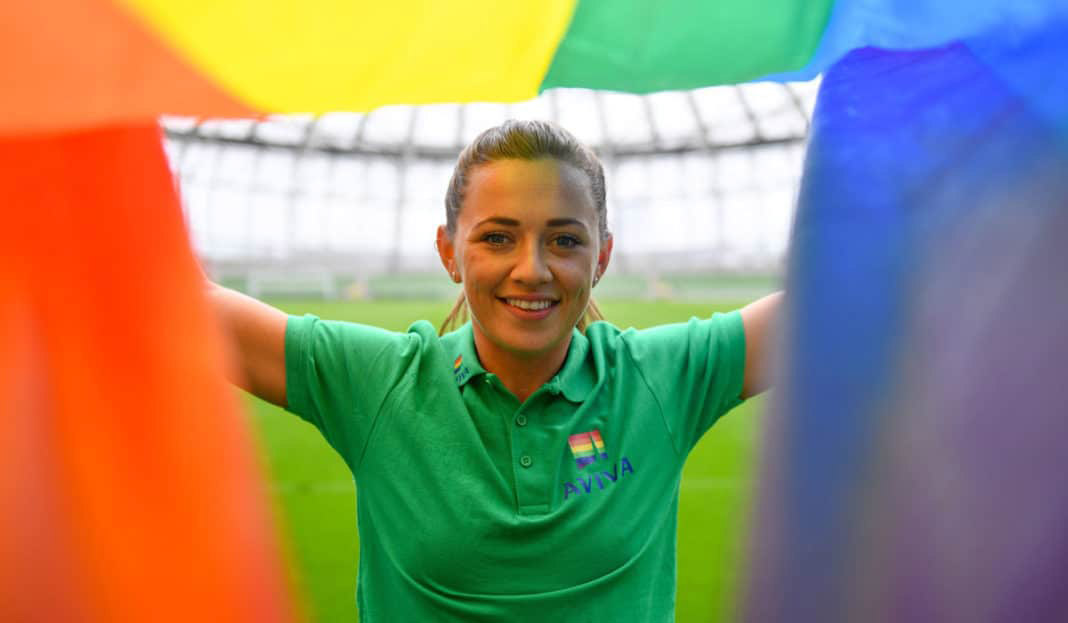June saw captain of the Irish national women’s football team Katie McCabe confirm her three-year relationship with fellow teammate Ruesha Littlejohn. As ambassadors for Aviva’s pride campaign, the pair spoke openly about their experiences being LGBT+, both on and off the pitch.
McCabe had no inhibitions before making the decision to publicly come out – she recognised that LGBT+ representation in sport could show tremendous support to young LGBT+ people in Ireland.
“I didn’t think twice about it. I think as footballers now we’re given this platform to be role models, and if I changed one person’s life and gave them that confidence to maybe come out to their parents or whatever like that, then I’m happy with that,” Katie McCabe reflected in an interview with the 42.
The team’s youngest ever captain’s coming out experience was overwhelmingly supportive: “We got a lot of positive messages. It was great to see. You get some stick but nothing bad. It was all positive, which I was quite happy with because it was a positive launch and a positive movement. I’m happy it went very well.”
McCabe largely attributes this to the growth in Ireland’s inclusiveness since marriage equality, commenting: “I know I’d definitely feel comfortable walking around Dublin with my partner. I’m happy about that. You should be able to feel comfortable in your own country.”
Nonethless, Katie McCabe and Littlejohn acknowledge that their experience is not shared by all LGBT+ members of the sports industry, especially male football players. McCabe expressed how “chilled” women’s teams are in regards to their players sexualities, whilst men’s teams tend to obsess over the subject. LGBT+ men are hardly represented in football teams globally, the statistical likelihood of which is almost impossible.
McCabe understands the scrutiny people in the public eye can face, and respects the privacy of those who’d rather not come out to the world. Still, she encourages male LGBT+ sports players to express their sexuality as she did. “They’re holding back for some sort of reason, I don’t know but they should maybe use their profile and their platform to come out.”
Katie McCabe has certainly become a role model for young people interested in sports, gay and straight; aged 23, she is the captain of Ireland’s national women’s team, whilst playing for Arsenal Women. “Growing up, my dream was to play football for Ireland. A few years ago, I was lucky enough to achieve this dream. One of my favourite things about sport is that it brings people together, it gives people a sense of belonging, and it fills them with great pride and passion.”
© 2019 GCN (Gay Community News). All rights reserved.
Support GCN
GCN is a free, vital resource for Ireland’s LGBTQ+ community since 1988.
GCN is a trading name of National LGBT Federation CLG, a registered charity - Charity Number: 20034580.
GCN relies on the generous support of the community and allies to sustain the crucial work that we do. Producing GCN is costly, and, in an industry which has been hugely impacted by rising costs, we need your support to help sustain and grow this vital resource.
Supporting GCN for as little as €1.99 per month will help us continue our work as Ireland’s free, independent LGBTQ+ media.

comments. Please sign in to comment.